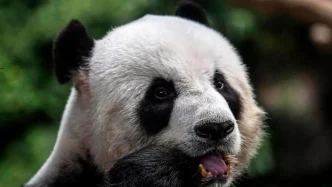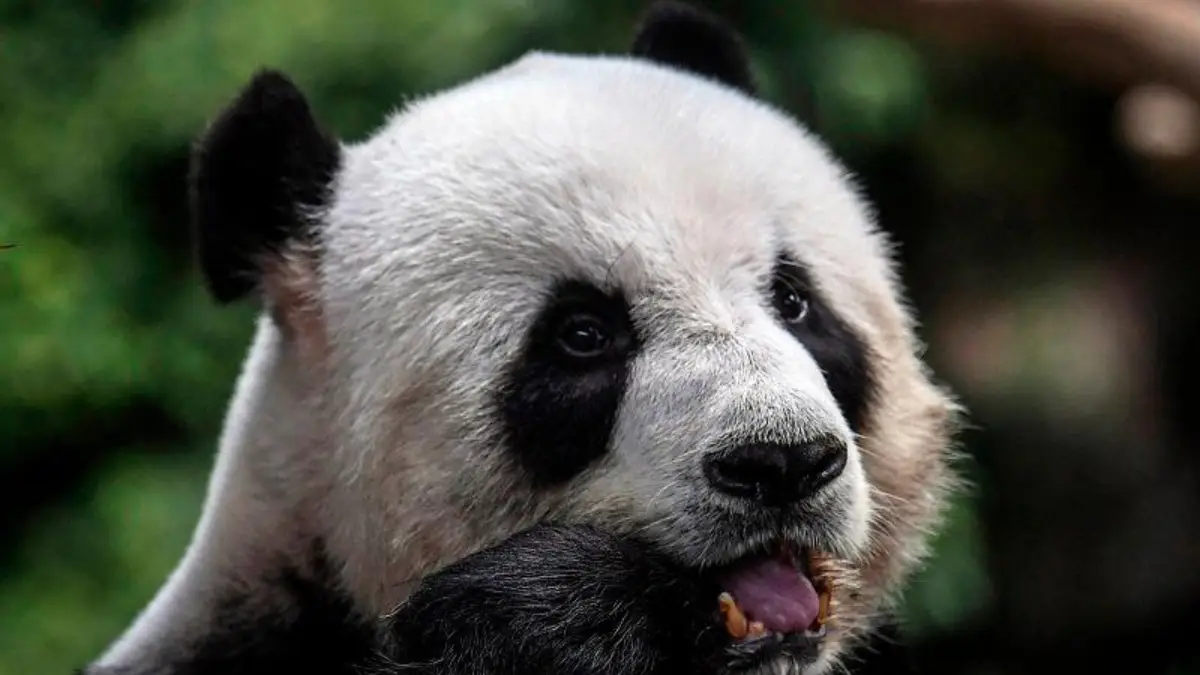Malaysia is set to embrace a new chapter in its wildlife conservation efforts with the arrival of two giant pandas, Chen Xing and Xiao Yue, from China. This development marks the continuation of a longstanding partnership between the two nations, focused on the protection and study of one of the world’s most iconic endangered species. Announced during a recent ceremony in Pahang, the initiative underscores Malaysia’s commitment to biodiversity and its diplomatic ties with Beijing.
A Symbolic Return and a New Beginning
The announcement came at an award ceremony on July 5, 2025, held at the National Elephant Conservation Centre in Kuala Gandah, Pahang. The event celebrated the repatriation of two giant pandas, Fu Wa (also known as Xing Xing) and Feng Yi (also known as Liang Liang), who returned to China on May 18, 2025, after an 11-year stay at Zoo Negara in Kuala Lumpur. Their time in Malaysia not only captivated the public but also contributed to vital research on panda behavior and reproduction in tropical climates.
During the ceremony, officials from Malaysia’s Natural Resources and Environmental Sustainability Ministry highlighted the success of the conservation mission. In a statement shared via Facebook by the ministry, they emphasized the collaborative efforts that made the pandas’ stay and safe return possible. The event saw attendance from key figures, including the Wildlife and National Parks Department (Perhilitan) director-general, Datuk Abdul Kadir Abu Hashim, and the ministry’s Biodiversity and Forestry Management Division secretary, Siva Kumar Solay Rajah. Their speeches reflected pride in Malaysia’s role in global conservation efforts and the nation’s dedication to meeting the obligations set by China in this unique exchange program.
Strengthening Bonds Through Conservation
The giant panda loan program, often referred to as “panda diplomacy” has been a hallmark of China’s soft power strategy for decades, fostering goodwill and cooperation with countries worldwide. For Malaysia, the arrival of Chen Xing and Xiao Yue represents more than just a conservation effort; it symbolizes the enduring friendship between Kuala Lumpur and Beijing. Since the first pair of pandas arrived in 2014 to commemorate 40 years of diplomatic relations, these animals have become ambassadors of cultural exchange, drawing thousands of visitors to Zoo Negara each year.
The ministry’s statement also expressed optimism for the future, noting hopes that this collaboration would persist with the new pair. The pandas are expected to play a crucial role in ongoing efforts to raise awareness about the species’ plight, with fewer than 1,900 individuals remaining in the wild, primarily in China’s Sichuan, Shaanxi, and Gansu provinces. By hosting Chen Xing and Xiao Yue, Malaysia aims to contribute to breeding programs and research that could aid in the species’ survival, even as challenges like habitat loss and climate change persist.
A Community Enchants with Pandas
For many Malaysians, the pandas at Zoo Negara have been more than a tourist attraction; they are a source of national pride and a reminder of the country’s role in global environmental stewardship. Families and schoolchildren have flocked to see the pandas over the years, with events like naming ceremonies—such as the one for Yi Yi, born to Liang Liang in Malaysia—becoming moments of shared joy. Images of Yi Yi alongside her mother, widely circulated by local media, captured hearts and underscored the tangible outcomes of international cooperation.
The upcoming arrival of Chen Xing and Xiao Yue is already generating excitement among conservationists and the public alike. Zoo Negara, which has invested in specialized enclosures and trained staff to care for the pandas, is preparing to welcome the new residents with educational programs and exhibits designed to engage visitors. These efforts aim to foster a deeper understanding of the challenges facing giant pandas and the importance of protecting their natural habitats.
Looking Ahead
As Malaysia prepares to welcome Chen Xing and Xiao Yue, questions remain about how this chapter of panda diplomacy will unfold. Will the new pair adapt to their tropical surroundings as successfully as their predecessors? And how will their presence influence public attitudes toward conservation in a region grappling with its own environmental challenges, from deforestation to urban sprawl? For now, the arrival of these gentle giants offers a moment of optimism, a small but meaningful step in the broader fight to preserve the planet’s biodiversity.
At Zoo Negara, anticipation is building. For the staff, conservationists, and visitors who will soon meet Chen Xing and Xiao Yue, the pandas represent not just a link to China, but a shared commitment to a future where species like theirs can thrive. In a world often divided by politics and borders, this partnership serves as a quiet reminder of what can be achieved when nations unite for a common cause.
















